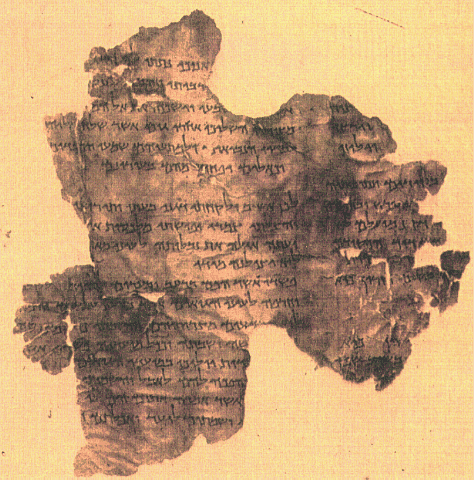Sermon Title:
Who Is Leading You?
| |
You probably do not have the Flash Player installed for your browser!
|
|
|
| Hosea 8:1-4
(Part1) |
Deuteronomy
28:49
(Part1) |
1 Peter 4:17 (Part1) |
| Hosea 8:1-3 (Part2) |
Hosea 8:4 (Part3) |
|
Israel, the ten tribes of the
Northern Kingdom, rejected everything That is good. They
did not even acknowledge that God
is responsible for all that is good. They did not even
consult with God about their choices for kings and
princes; they chose
leaders who did not know God.
In many ways, we in this country, do not acknowledge
who God is and all of the good things that He provides
for us. Many
of us do not consult Him about who we should elect as
our leaders, nationally, at the state level and at the
local level. We need
leaders who will stand for God. We who are God’s
children must live up to God’s standards and His
covenant. We have a choice
to live for Christ in God’s love or receive His wrath. |
| |
|
| Verses Referenced during the Sermon |
| Deuteronomy 28
(Part1) |
Matthew 15:14
(Part2) |
Acts 16:16-24 (Part3) |
| 1 Peter 4:17
(Part1) |
Matthew
15:11-32
(Part2) |
Acts 12:5-19 (Part3) |
| Matthew 22:37 (Part2) |
Joshua Chap. 7
- Chap. 8:34 (Part3) |
1 John 1:9 (Part3) |
|
 |
Parchment - Copied late first
century B.C.E.
Height 17.5 cm (6 7/8 in.), length 16.8 cm (6 5/8 in.)
Courtesy of the Israel Antiquities Authority
Known as "The Hosea Commentary
Scroll" was first published by J. Allegro as the fifth
volume of the official publication series, "Discoveries
in the Judaean Desert." |
|
| |
| Traditional 12 Tribes Of Israel |
| Reuben |
Issachar |
Naphtali |
Benjamin |
| Simeon |
Zebulun |
Gad |
Joseph |
| Judah |
Dan |
Asher |
Levi |
|
| 12 Tribes (according to allotment of
land) |
| Reuben |
Issachar |
Naphtali |
Benjamin |
| Simeon |
Zebulun |
Gad |
Ephraim (Son of Joseph) |
| Judah |
Dan |
Asher |
Manasseh (Son of Joseph) |
Levites being priest
were not allocated land, except a number of cities located
within the territories of the other tribes.
(Joshua 14:3). Jacob elevated the descendants of Ephraim and
Manasseh (the two sons of Joseph by his Egyptian wife Asenath)
(Genesis 41:50) to the status of full tribes in their own right,
replacing the Tribe of Joseph (Joshua 14:4). |
Israel was divided during the reign of Rehoboam (son of Solomon
960s BCE). Israel (Northern Kingdom) rejected Rehoboam as their
king. Ten tribes formed the
Northern Kingdom: the tribes of Reuben, Issachar, Zebulun, Dan,
Naphtali, Gad, Asher, Ephraim,
Simeon and Manasseh. In addition, some
members of Tribe of Levi, who had no land allocation, were found
in the Northern Kingdom. The Tribes of Judah and Benjamin
remained loyal to Rehoboam, and formed the Kingdom of Judah (or
Southern Kingdom). Members of the Tribe of Levi, and the remnant
of the Tribe of Simeon was also part of the Southern Kingdom. |
| |
